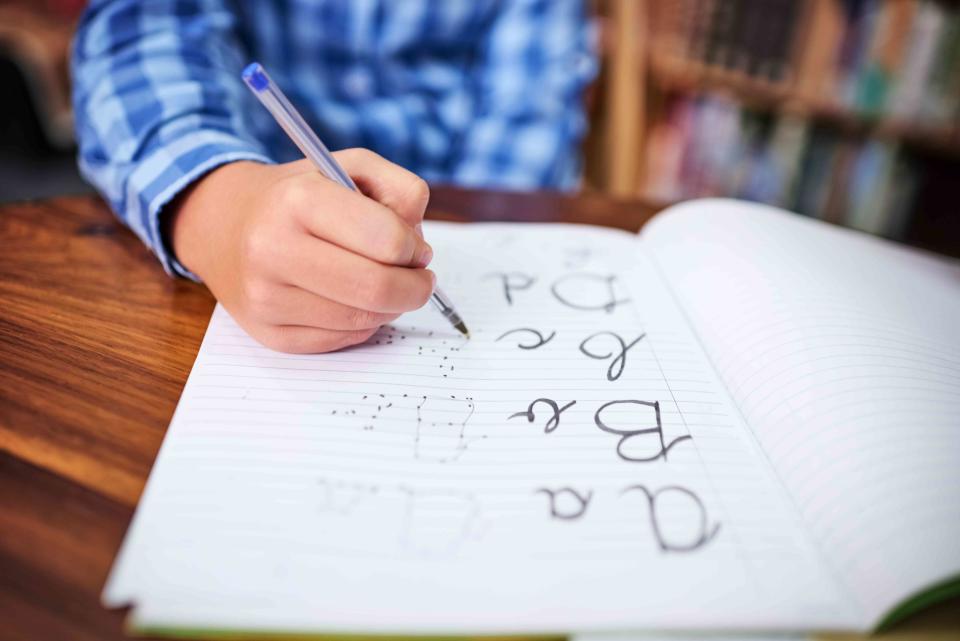80,000 Students Participate In This National Cursive Contest Each Year
Now in its 32nd year, the Zaner-Bloser National Handwriting Contest is proof that this old-fashioned skill isn’t going anywhere.

PeopleImages/Getty Images
There was a time when every American student was expected to learn how to write in cursive. While it’s a skill that has fallen out of favor in recent decades, one national contest is proof that it’s not only still being taught, but celebrated.
Now in its 32nd year, the Zaner-Bloser National Handwriting Contest continues to attract about 80,000 participants annually. Top winners of this year’s contest hail from public and private schools in 16 states, representing grades kindergarten through eighth. (You can find the full list of this year’s winners here).
“Simply put, it’s fun,” a representative for the contest told Southern Living. “Kids actually enjoy learning to write and get satisfaction in forming recognizable letters that others can read. They like to see the progress they’re making. The handwriting contest gives them additional motivation, as it provides a chance to show off their skills and receive recognition for their hard work.”
Students in kindergarten through second grade compete in the manuscript (print) category, while students in grades three through eight compete in the cursive category.
All students write the required sentence: “The quick brown fox jumps over the lazy dog” because it contains every letter of the alphabet. Judges select winners based on Zaner-Bloser’s four keys to legibility: the shape, size, spacing, and slant of the letters.
Along with the fun of some healthy competition, contestants reap the cognitive benefits that stem from the handwriting process. In the earliest grades, learning to write letters by hand helps children learn to recognize them more quickly. Many experts believe that the slow act of writing helps students focus thoughts on the content involved. In fact, a 2020 study determined that writing in cursive stimulates electrical activity in the brain that primes it for learning and memorization.
“Research tells us what handwriting can do to support cognitive development and better academic outcomes. That’s why we’re committed to recognizing those schools that encourage the use of manuscript and cursive, and the students who work so hard to master it,” Lisa Carmona, president of Zaner-Bloser, said in a statement. “As long as our contest continues to motivate kids, help them gain confidence and make the learning process more fun, we’ll make sure it’s an option for any school that wants to participate.”
Congratulations to this year’s winners!
For more information visit zaner-bloser.com/national-handwriting-contest.
For more Southern Living news, make sure to sign up for our newsletter!
Read the original article on Southern Living.

